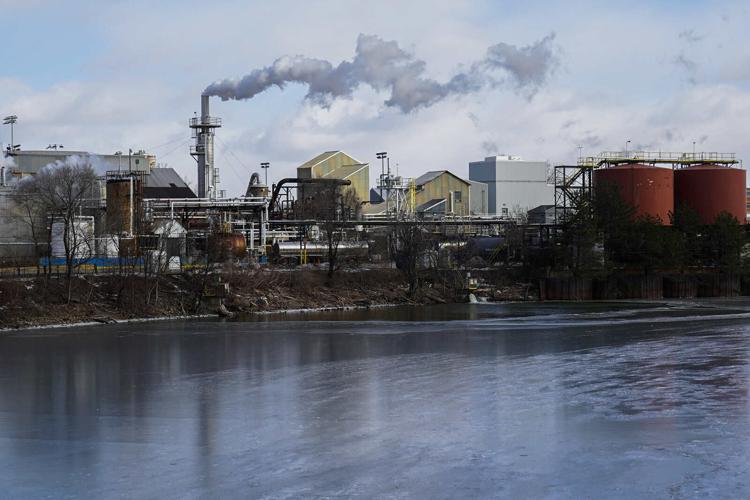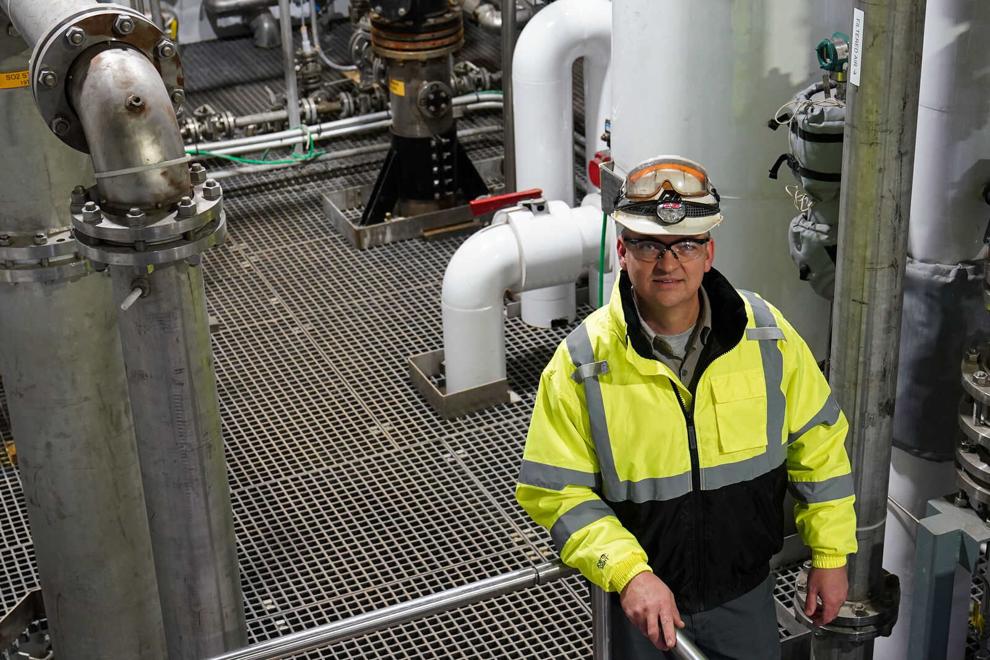2 March

PVS Solutions rides semiconductor wave
All of the announcements of new semiconductor investments are good news for PVS Solutions in Buffalo.
The company makes ultra-pure sulfuric acid, which is used in the chip production process. PVS manufactures the product at its plant in the Seneca Babcock neighborhood and ships it in specially equipped trucks to customers across the nation.
New chip plants are set to be built in Arizona and Texas, as well as just down the Thruway, with Micron Technology’s planned facility outside Syracuse and a GlobalFoundries expansion near Albany.
The company delivers its product to its customers wherever they are, but from a logistical standpoint, it helps to have customers closer to home.
Domestic production of semiconductor chips has become a hot topic, after supply chain disruptions during the pandemic caused chip shortages. The CHIPS and Science Act passed last year incentivizes production of chips in the United States.
“The CHIPS Act will reshape the industry,” Militello said. “It will not only support the semiconductor manufacturers, it will support the downstream supply chain that is required.”
Chips connection
PVS Solutions is part of PVS Chemicals, a Detroit-based, family-owned company that bought the Buffalo chemical plant in 1981. Five years later, the company made a decision that resonates today.
The Lee Street plant was already making sulfuric acid, but the company decided to add production of ultra-pure sulfuric acid, to supply the emerging computer chip industry. Even today, ultra-pure represents only a slice of all domestic sulfuric acid production.
“It’s how we survived here,” said Dean Larson, president of PVS Solutions. “If we didn’t make the transition here, we would not have survived in the commodity market. We’re just too small. We would have been just a nonfactor in that business.”
The company made follow-up investments in ultra-pure acid production, in 2006 and 2016, with increasingly advanced technology. All three generations of ultra-pure remain in production, with different customers for each product.
“We’ve moved with the market,” Larson said. “As the market has needed more product and higher-quality product, we’ve been able to pivot and make that investment.”
PVS Chemicals, which has operations around the country, has invested $30 million in ultra-pure operations at the Buffalo plant since 2016. The high-purity production makes the Buffalo plant stand out within PVS.
“It’s why we reinvest in Buffalo,” Larson said. “Each time that we’ve made the investment, it’s given us returns and it’s given us the ability to reinvest in that business.”
As the domestic semiconductor manufacturing grows, company officials say it’s possible PVS Chemicals will invest in a sister plant in Chicago to produce more ultra-pure, because there’s more available capacity to expand there.
Diversification is key
Ultra-pure sulfuric acid represents about one-third of the Buffalo plant’s production volume. The plant also makes sodium bisulfite for treating municipal water systems – including New York City’s – ammonium thiosulfate, and standard-grade sulfuric acid. Also, the plant recycles spent sulfuric acid from refineries.
The Buffalo plant’s diversified product lineup and its ability to change with the times are among the reasons it has survived through the decades.
In the early 1990s, the Buffalo site added production of ammonium thiosulfate, to support the photograph industry.
“At one time, Kodak was the largest customer of this plant,” Larson said. “We shipped 35 truckloads a week of ammonium thiosulfate for developing pictures.”
Then along came digital photography, disrupting the industry. By the early 2000s, the film market that PVS Solutions had relied on for its product had fizzled. The plant still makes ammonium thiosulfate, albeit about half the previous level, for use in corn planting.
“We’ve got enough diversity in our business that if one segment is down, we’re usually holding our own with one of the other segments,” Larson said.
A changing neighborhood
The plant, located along the Buffalo River, dates to 1870s. The site has operated under different owners and names over the decades. PVS Chemicals bought the plant from Allied Corp.
“When the Buffalo Color site across the street closed, it increased our union workforce by about 30%,” said Robert Davis, the Buffalo plant manager. “Some of those gentlemen have retired from here, some of them are still working on retirement in the next couple of years.” Some sons of the ex-Buffalo Color employees are now working PVS Solutions, too.
The plant has about 55 employees, 37 of whom are represented by the United Steelworkers union.
“What we did do for a short period is we cut back on our production, for four or five weeks, and made sure we were in full compliance,” Larson said. “We’ve continued to work very well with the DEC over the past couple of years to tighten down our operation, if you will.”
In a statement, the DEC said that since 2020, the agency has “has closely monitored this facility, including inspections and ambient air quality monitoring, which resulted in enforcement actions against PVS.
“These efforts culminated in three administrative orders, an assessment of civil penalties, and performance of significant corrective actions and operational modifications to address certain air quality violations from fugitive sulfur dioxide emissions from the Lee Street facility.”
“Recent air monitoring around the facility demonstrated that the work performed by PVS under DEC’s rigorous oversight has reduced sulfur dioxide emissions from fugitive sources at the facility to acceptable levels,” the agency said.
The DEC said it is “undertaking additional work this year to address potential sulfur dioxide emissions from unplanned shutdowns of the facility, as well as to abate the intermittent hydrogen sulfide odors associated with certain sulfur deliveries to the facility.”
Medaille University sued PVS in 2021 but later dropped the suit. The university “continues to work with the (DEC) in regards to continued issues emanating from emissions from PVS,” said Tricia Jetty, Medaille’s director of communications.
Larson defends how PVS Solutions runs its operations: “It’s an industrial plant. There are occasionally odors out of here, but it’s not health related whatsoever.”
This post was originally published on buffalonews.com by MATT GLYNN.
Original Media Link:
